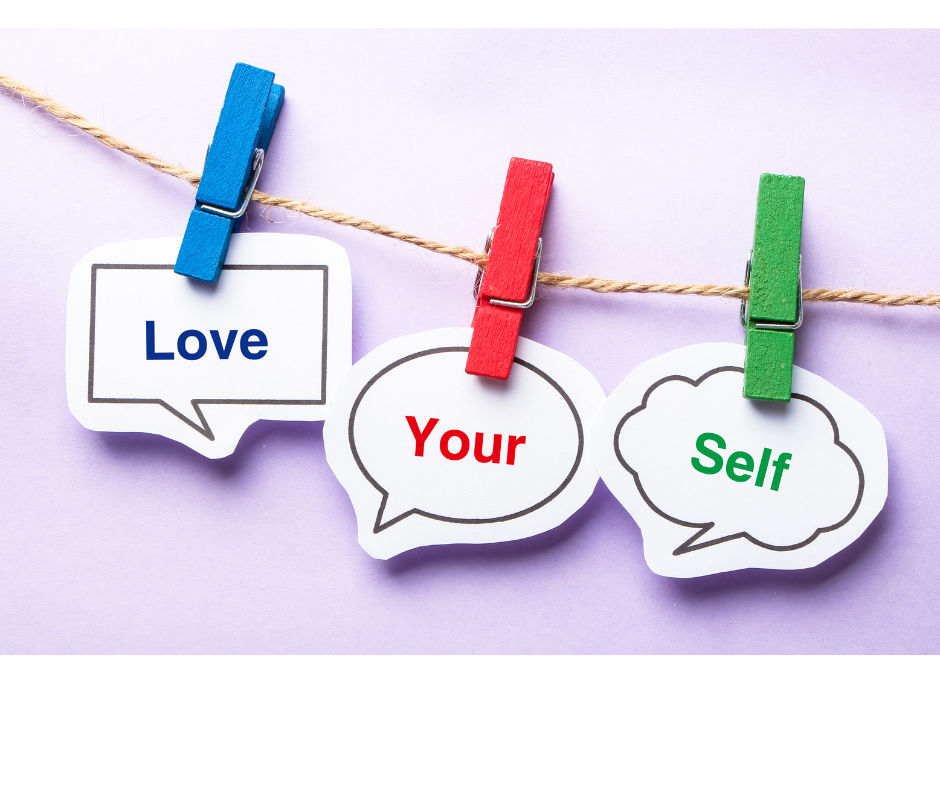Self-Confidence!
SELF-CONFIDENCE!
- What is this strange wee beastie & how do I catch it?
- What is Self-Confidence?
- The 2 main factors contributing to a healthy self-confidence are
- Self-esteem and Self-efficacy
SELF-ESTEEM
For a well-balanced person this is the knowledge that have you have a right to be happy and can successfully deal with what happens in your life.
These feelings have their roots in you receiving positive feedback for what you do and how you are seen by others; from being a trusted friend, colleague or partner and, importantly, receiving clear evidence of your competence, be that in work or otherwise.
Also, that you feel you are behaving honourably & that you can do whatever you set out to do, even if it appears difficult at first or when others don't agree with you.
SELF-EFFICACY
Twinned with self-esteem is your sense of self-efficacy. This is when you realise you have mastered skills and are achieving goals that matter in those skills.
It is the confidence that hard work and learning will bring success and allows you to take on difficult challenges and keep going in the face of any setbacks and obstacles.
OVER-CONFIDENCE
Over-confidence is an unsupported belief, or unrealistic presumption that you can perform effectively. It is based on little to no competence foundation; and generally, exists as a result of an inflated ego or, sadly, a mental instability.
Over-confidence shows itself in arrogant behaviours, self-aggrandisements or over-bearing “I'm always right” manners. These are traits of complete self-absorption where a person over-estimates their capacity and success to perform effectively, in work and in relationships with other people.
There is clearly a wide scale of over-confidence from a basic over-keenness to try, despite clear lack of ability, to the full-on narcissist who believes they are perfect in every way. Nevertheless, wherever in the scale the over-confident person is at, it's their lack of appropriate competence that's the killing stroke.
SUPPORTING SELF-CONFIDENCE
Positive thinking & confident declarations.
Yes, there is very definitely some mileage in these; so, don't necessarily dismiss it as mumbo-jumbo. Clearly if it embarrasses you to do it, then refrain as it would be counterproductive.However, if you can look in a mirror and say to your reflection “You can do this!”, as an inspirational self-motivational talk that fires you up, why not? Olympic athletes picture themselves winning – why not you?!
BUILDING COMPETENCE
It is structurally important for self-confidence to set and achieve goals. These are the two building blocks of competence and, as a result, confidence.
However, don't get hung up on trying to achieve ‘perfection' – good enough is good enough and will get the work done efficiently and professionally. Strive to improve, yes, plan for successful outcomes, absolutely…just don't let your anxieties tell you to “know everything” and stop you from doing anything at all. Look for support and guidance if you need it; don't be afraid to ask for help. Eventually you will be the one giving out instructions to the ‘newbie'…
Without the foundation stones of competence, you won't achieve self-confidence.
Without the back-up of competence, you merely have superficial over-confidence.
Over-confidence comes with problems such as if a failure occurs that leads to a drastic mistake.
We will look at building competence in the next blog.
CONFIDENCE! HOW CONFIDENT ARE YOU?
Self-confidence is shown in your behaviour traits; for example, by comfortably using open body language and speaking clearly with your head held high. You have a glad conviction that you are competent at your job but you are also ever willing to adapt, learn and take measured risks to improve further.
It is also evidenced by the positive effect you have on other people. They will eagerly seek you out as a trusted, skillful, knowledgeable colleague/friend. Self-confident people are very enthusiastic participators in life and are great to be around.
Self-confident people are a positive strength, make great leaders and team players, as they inspire confidence in others.
On the other side of the coin - low self-confidence often shows as negativity, a fearful person full of anxieties. Sadly, it can be very destructive and isolating for the individual as well as causing difficulties within a team-work environment. You might be viewed as less capable than other people - after all, if YOU don't think you can do it, why should anyone else?You might become excluded.

LET'S COMPARE
- Self-confidence V Low Self-confidence
- Healthy self-Confidence statements and low self-confidence statements.
- Take measured risks and extend your skills and competence.
- Avoid taking risks through fear of failure.Stay in your comfort zone.
- Do what you believe to be right, or refrain from doing what you believe to be wrong, even if others disagree.
- Regulate your behaviour entirely based on what others think.
- Admit your mistakes and learn from them.
- Cover up mistakes and rarely/never admit to them.
- Does not seek kudos for skills and abilities; you know you do a great job. Happy to add skills and extend learning.
- Constantly seeks approval. Worries is not good enough. Shies away from learning new things. Fearful and anxious. ‘Imposter syndrome'.
- Recognition of a job well done is accepted gracefully “Cheers! That did go really well, didn't it? I'm chuffed!”.
- Dismissing a well-earned compliment or congratulations “Oh, it was nothing really” or “I could've done better”.
- Readily admit what you don't know & cheerfully go & find out how to do it.
- Reluctant to admit you what don't know because you think it makes you look stupid.
NEXT EDITION - BUILDING YOUR SELF-CONFIDENCE